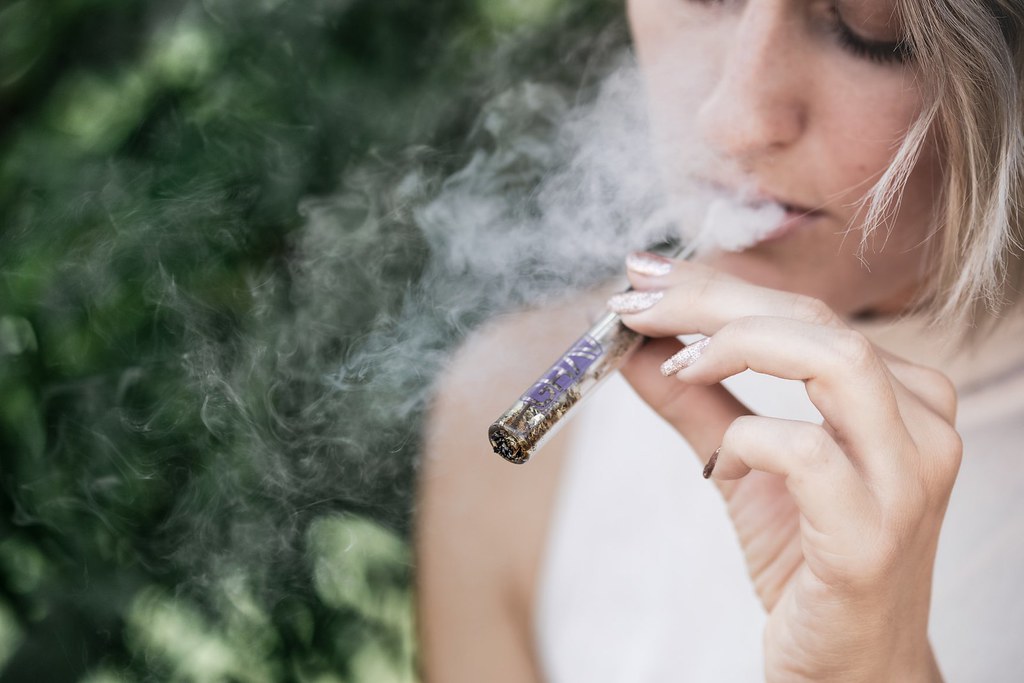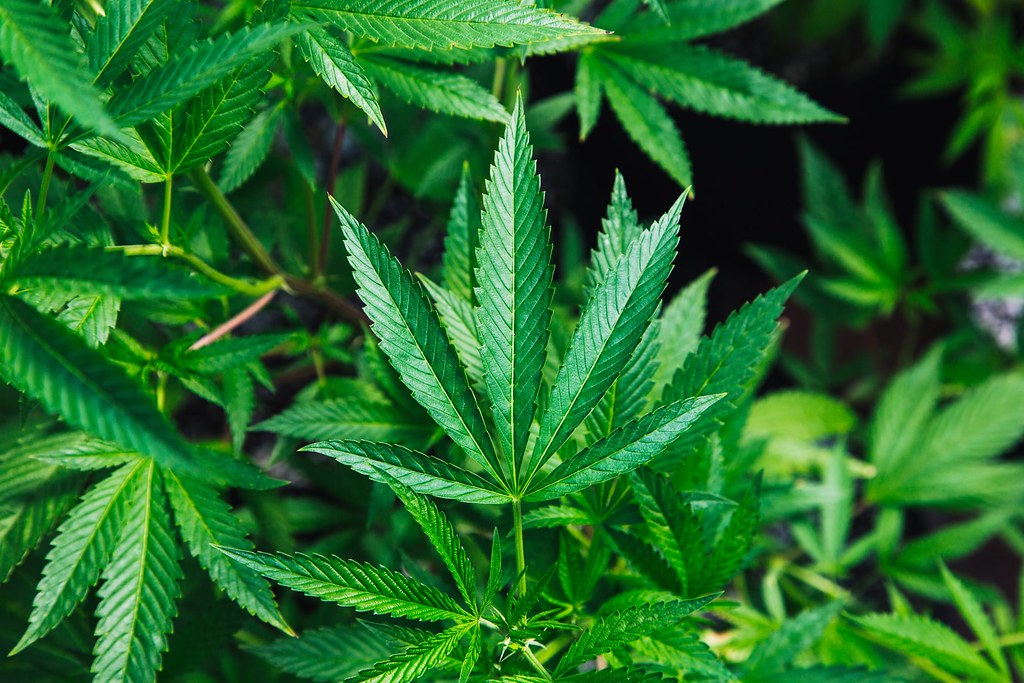Can my principal censor an article that talks about student drug use and the negative long-term effects?
If your school newspaper is a limited public forum or a public forum, then your school administrators have less authority to control the content of the newspaper. It is really important that your newspaper is not typically subject to prior review and that you only showed the principal this photo out of courtesy.
Although the Supreme Court has said that schools have the power to censor the promotion of illegal drug use, you’re not promoting drugs. Rather, you’re discouraging the use of drugs by discussing the dangers that they pose to your health. Your article has a legitimate educational purpose and is something that could be very beneficial to many students. Even though the administration may be uncomfortable with the picture of someone smoking marijuana, isn't the whole point of the article to prevent drug use? Clearly, the administration missed that one. Your school administration cannot censor your article based on the picture alone either.
Finally, schools also have the power to censor any speech that causes or may cause a substantial disruption to the school environment. They may argue that the picture of someone smoking weed will cause a disruption in the school, but how likely is that? We mean, c’mon. Would you be so shocked by a picture of someone smoking a joint that you couldn’t focus on school? If the school’s reasoning for censoring your article is that the picture would cause a substantial disruption to the learning environment, the school is probably going to lose on that argument.
There are three types of forums that your school newspaper may be: a public forum, a limited public forum, and a nonpublic forum. If your school newspaper is considered a public forum or a limited public forum, you are likely in the clear and your principal cannot censor your story.
There are several factors that courts have established to determine what kind of forum a school newspaper is. In the court case Hazelwood School District v. Kuhlmeier, the Supreme Court created six factors that determine the type of forum a school publication may be. Let’s look at each of them:
1. Whether the students produced the newspaper as part of the high school curriculum;
2. Whether students receive credits and grades for completing the course;
3. Whether a member of the faculty oversaw the production;
4. Whether the school deviated from its policy of producing the paper as part of the educational curriculum;
5. The degree of control the administration and the faculty advisor exercise; and
6. Applicable written policy statements of the board of education.
So in a nutshell, the less involved the school administrators are in the school publication, the less control they have over the content of the publication.
For example, if you only showed your principal the picture of the person smoking weed as a courtesy and the principal hasn’t exercised prior review of any content of the newspaper in years, this tips the factors in favor of a limited-public forum or a public forum. If you receive grades for your newspaper class, that means the newspaper is not a public forum because the grading shows that there is at least some editorial control over the newspaper. However, things like having students solicit ads from outside businesses for the paper or not receiving funding from the school also tips toward the newspaper being a limited public forum.
For a more in depth analysis on whether your school newspaper is a limited public forum (meaning that your school probably cannot censor the content of your newspaper), see our Q&A on forums.
Doesn’t the fact that I’m writing about drugs have anything to do with the school’s censorship powers?
It could, but the forum of your school newspaper is more important. The Supreme Court looked at the promotion of illegal drug use in schools in a case called Morse v. Frederick. In this case, a student brought a banner that read “BONG HiTS 4 JESUS” to a school function and displayed it while his school was being featured on the local news. The student was punished for his banner because it promoted illegal drug use, and the Supreme Court agreed that the school had the power to punish this student. So, for example, if your state banned the smoking of e-cigarettes, and you wore a t-shirt to school that said “Ditch the Paper, go for Vapor,” your school could likely ask you to put on a different shirt and punish you if you refused to change your shirt because you are promoting the illegal use of e-cigarettes.
However, in your case, you’re not promoting the use of illegal drugs; you’re actually doing the opposite. Your article discusses the dangers of using drugs, which is educational and beneficial to many high school students. Even if your school is a limited public forum, where the school may be able to censor the content of your school newspaper ONLY if it has a legitimate educational concern, the school probably doesn’t have this requirement. For the administration to have the power to shut down your article, it has to contain something poorly written, inadequately researched, prejudiced, vulgar, profane, or unsuitable for a high school audience. For example, an article promoting students bringing confederate flags to school can probably be shut down because it has a racist undertone and is prejudiced. In your example, your principal may try to argue that he can censor your article because the picture of someone smoking weed is unsuitable for a high school audience, but the content of the article says otherwise. Because you are writing an educational article for the purpose of teaching students about the dangers of drugs, your principal probably cannot censor your article, even if it discusses drugs, as long as your newspaper is a public forum or limited public forum.
Are there others reason the school may be able to censor my article?
Although it is a long shot, the school administrators might try to argue that the article could cause a disruption in the school environment. Any action or speech that causes or is likely to cause a substantial disruption to the school day or the learning of students can be censored. However, your article discussing the dangers of using drugs probably won’t cause a serious disruption. Imagine you see this article with someone smoking weed for the first time. Is that photo really going to shock you and your peers so much that you can’t learn? Will you talk about it during class so much that you don’t pay attention to the teacher and don’t do your work? Probably not. Smoking weed is a pretty common thing and odds are a picture of someone smoking a joint (or any. smoking device for that matter) is not going to disrupt someone’s learning.
Plus the content of the article isn’t all that controversial. Now, if the article discussed something like encouraging the legalization of drugs, that may be more likely to cause a disruption because people probably have strong, differing viewpoints on this topic. However, because your article is purely educational and focuses on the long-term effects of using drugs, it’s probably not going to cause a huge rumble among students.
What if I took my own photo of someone smoking a joint? Could I get in trouble for that or be forced to tell the administration who the student in the picture is?
If you decided to use your own photography for your article and you photographed an unrecognizable student smoking marijuana, as long as the picture was taken off-campus and your school newspaper is not a non-public forum, you probably cannot get in trouble for the picture or be forced to reveal who the student is. However, there has to be no connection to the school whatsoever. So, if your photo was taken on campus, or caused a substantial disruption in classrooms, the school could likely restrict the use or publication of that photo.
As long as there’s no connection to the school in this photo, you cannot get in trouble for photographing someone smoking marijuana. Further, the school administration cannot force you to reveal who the unrecognizable student in the picture is as long as there’s no connection to the school. In Michigan, there is a reporter privilege law that protects journalists from being forced to reveal their sources. In this case, that law would protect the student from being forced to reveal who the student smoking the joint is if it occurred in Michigan. This law encourages honest journalism and gives people an incentive to talk about controversial, yet important, stories while giving them protection. Other states have different laws changing the level of protection that student journalists have, so it is important to read up on your state’s relevant laws. To view your state’s laws, see the Student Press Law Center’s guide to the reporter’s privilege for student media.
Just to be safe, we recommend using a picture of a non-student smoking marijuana. Smoking weed is still illegal in most states. Even in the states where it is legal, it is illegal for people under the age of 21. Because it’s likely not legal for a high school student to smoke marijuana, just use a picture of someone else. You don’t want to get caught smoking weed illegally and have to face the consequences of the law because they probably will be even harsher than the consequences at your school.
Have questions about free speech rights?
Send your questions our way, and we'll have our team find you an answer. Keep in mind, we’re not actually your lawyers and aren’t representing you. We can definitely help clear some things up and give you some info, but if you need actual legal help for your situation, you should find a lawyer in your area. And don't worry, any information we collect is only for our own research, and we won’t share it or sell it to anyone.




